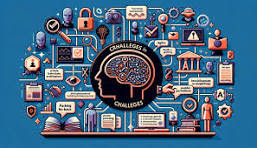The Future of AI: How Artificial Intelligence is Shaping Our Tomorrow
Artificial Intelligence (AI) is no longer just a buzzword; it’s an integral part of our daily lives, transforming industries, enhancing productivity, and even changing the way we think and interact. As we move into the future, AI is poised to reshape not just individual sectors but society as a whole. This article delves into the various dimensions of AI’s evolution and its profound impact on our tomorrow.
Understanding AI: A Brief Overview
At its core, AI refers to the simulation of human intelligence in machines that are designed to think and learn. This includes capabilities such as problem-solving, pattern recognition, understanding natural language, and even perception. The field of AI has evolved significantly since its inception, with advancements in machine learning, neural networks, and natural language processing leading the charge.
Revolutionizing Industries
AI’s impact can be seen across numerous sectors:
1. Healthcare: AI is revolutionizing diagnostics, patient care, and drug discovery. Machine learning algorithms can analyze medical images with remarkable accuracy, sometimes outperforming human doctors. Predictive analytics also helps in identifying patients at risk of diseases, allowing for early intervention.
2. Finance: In the financial sector, AI algorithms analyze vast datasets to detect fraud, assess risks, and automate trading. Robo-advisors provide personalized investment advice based on individual risk profiles, democratizing access to financial planning.
3. Transportation: Autonomous vehicles are at the forefront of AI innovation in transportation. Companies like Tesla and Waymo are developing self-driving cars that promise to enhance road safety, reduce traffic congestion, and minimize carbon emissions.
4. Retail: AI is transforming the shopping experience through personalized recommendations, inventory management, and customer service chatbots. Retailers use AI-driven analytics to understand consumer behavior, optimize supply chains, and enhance customer satisfaction.
Enhancing Everyday Life
AI is not just reshaping industries; it’s also changing our daily lives. Virtual assistants like Siri, Alexa, and Google Assistant have become commonplace, helping users manage tasks, set reminders, and control smart home devices. AI algorithms curate our news feeds, recommend movies, and suggest products based on our preferences, making our interactions with technology more seamless and personalized.
Addressing Challenges
While the benefits of AI are significant, the technology also poses challenges that society must address. One major concern is job displacement. As automation increases, there is a fear that many jobs could become obsolete, particularly in manufacturing and administrative roles. It’s crucial for educational systems to adapt and prepare the workforce for jobs that require skills complementary to AI technologies.
Another concern is the ethical implications of AI. Issues such as data privacy, algorithmic bias, and the accountability of AI systems are hot topics in ongoing discussions about the future of AI. Ensuring that AI is developed and deployed responsibly will require collaboration among governments, organizations, and ethicists to create frameworks that promote fairness and transparency.
The Road Ahead
As we look to the future, AI is expected to become even more integrated into our lives. Innovations such as AI-powered smart cities, where data is used to optimize everything from traffic flow to energy consumption, promise to enhance urban living. Additionally, advancements in AI research, such as general intelligence, could lead to systems that think and reason more like humans, opening new possibilities in creativity and problem-solving.
The future of AI is not just about technological advancements; it’s about how we choose to harness these capabilities for the greater good. By embracing AI responsibly and ethically, we can shape a future where technology enhances our lives, fosters innovation, and addresses the pressing challenges we face as a society.
Conclusion
The impact of AI on our tomorrow is profound and multifaceted. It is poised to revolutionize industries, enhance everyday life, and address some of our most pressing challenges. As we navigate this exciting landscape, it’s essential to approach AI with a sense of responsibility, ensuring that its benefits are accessible to all while mitigating its potential drawbacks. The journey of AI has only just begun, and its future holds endless possibilities for shaping a better world.


%20pada%20Fungsi%20HR.png)
.jpg)
.jpg)

.jpg)

.jpg)

.jpg)
.jpg)

.jpg)

0 Comments